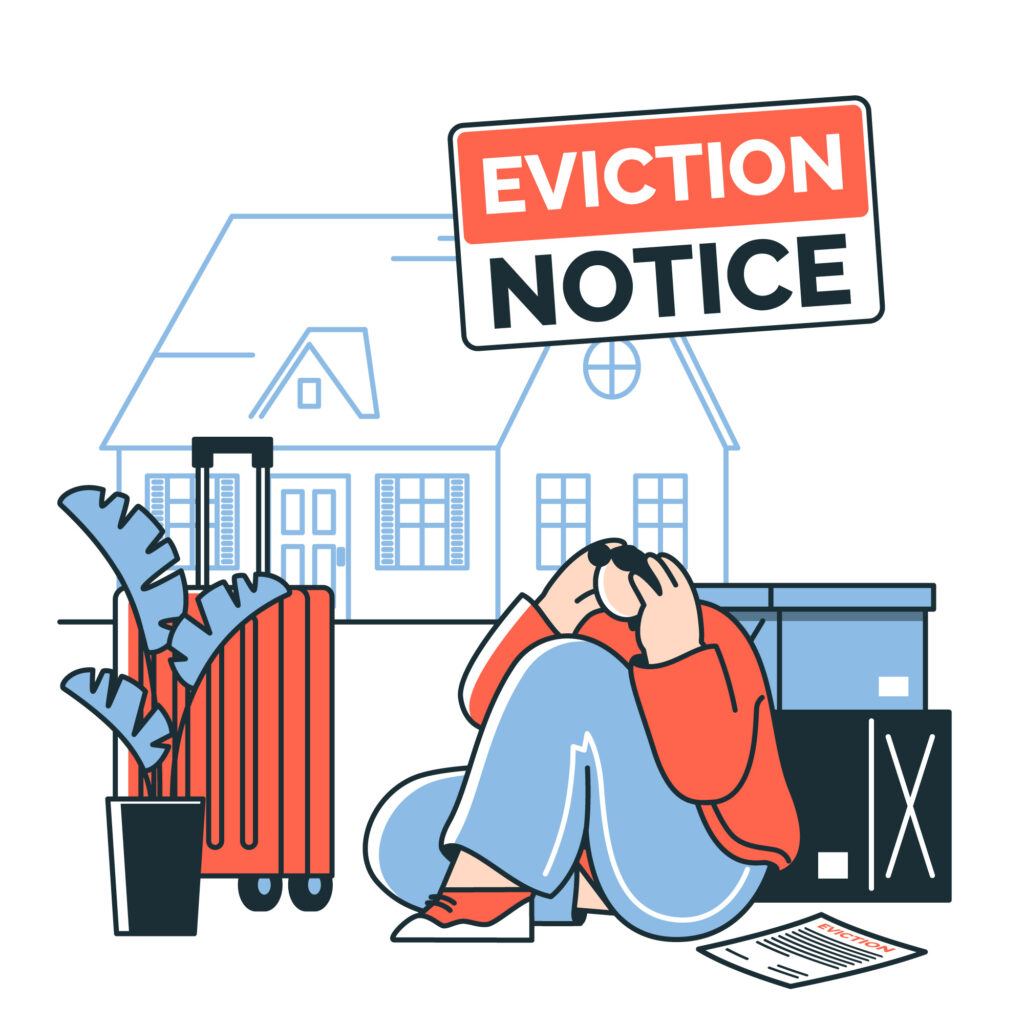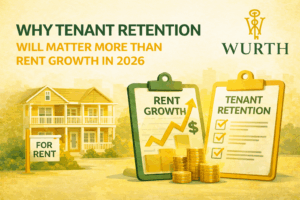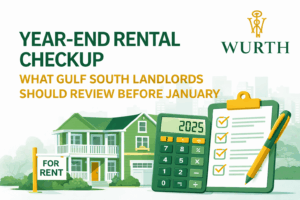
Let’s get one thing out of the way: no one wants to evict anyone. Not you, not the tenant, and definitely not the person stuck dealing with all the paperwork, court dates, and awkward key exchanges. It’s expensive. It’s stressful. And if you’re not careful, it can become an all-too-familiar part of owning rental property.
So when you hear a property management company like Wurth Property Management say we’ve maintained a 1% eviction rate, it might raise an eyebrow. One percent? Yep, one percent. As in, 99 out of 100 tenants stay in good standing. No legal drama. No midnight stress-scrolling.
It’s not luck. It’s not guesswork. It’s screening. And we take it seriously.
Powerful Screening
Tenant screening doesn’t make for glamorous conversation. There’s no Netflix docuseries called “Background Check: The Reckoning.” But ask any experienced landlord or property manager, and they’ll tell you, it’s the behind-the-scenes hero that quietly saves thousands.
Proper screening is about being precise. Income verification. Rental history. Credit reports. Employment status. Yes, it’s a lot. But skipping it because it feels tedious? That’s how you end up Googling “how to get someone out of my rental legally” at 2 a.m. while nursing a stress headache.
Wurth PM’s 1% eviction rate? That’s the result of years of refining their screening process, learning from the industry’s growing pains, and knowing what red flags actually matter. And if you want to dive deeper into screening best practices, check out these tenant screening secrets every landlord should know.
The Cost of One Bad Tenant
Maybe you’re thinking, “How bad could one bad tenant be?” Well. The first things that come to mind are the property damage and the legal fees. The vacancy while you clean, repaint, repair, and relist. According to TransUnion, a single eviction can cost landlords up to $3,500, sometimes more if things drag on.
And, you’d probably rather put that money into literally anything else. A vacation. A new HVAC. An espresso machine that isn’t from 2009. Whatever.
This is where a good property manager enters to save the day. Not just by reacting when things go sideways, but by preventing the chaos in the first place.

The Human Side of Screening
We’re all people. Life happens. Credit dips. Jobs change. Emergencies come out of nowhere. So, you shouldn’t look at screening as excluding anyone who’s had a tough year. Instead, think of its main goal: assessing risk fairly.
Property managers don’t use rigid checklists. They ask smart questions. They talk to previous landlords. They try to understand patterns, not just numbers. It’s part instinct, part analytics, and part “I’ve seen this exact situation before, and it didn’t end well.”
Screening done right helps everyone. Tenants land in homes that suit them financially and practically. Landlords get consistent income and peace of mind. No one ends up surprised, or worse, in court.
Okay, So What Should You Do?
If you’re self-managing your rental, here’s a quick gut check: Are you verifying income properly? Are you calling former landlords, or just accepting whatever reference is listed? Do you know what to look for in a credit report besides the number itself?
If your answer is “kind of?” or “ehh, not really,” don’t beat yourself up. This stuff is complicated. And honestly, it’s time-consuming. That’s exactly why a lot of landlords eventually call us.
At Wurth Property Management, we really dig in. We’ve spent years fine-tuning a screening process that actually works. That 1% eviction rate? It’s not luck. It’s the result of knowing what questions to ask, which red flags matter, and how to match the right tenants with the right properties.
We’re not here to rubber-stamp anyone or turn away good people just because their credit dipped in 2020. We take a balanced approach, part data, part common sense, part “we’ve been around the block.” Because the goal is not to fill a vacancy but to avoid future headaches, for you and your tenants.
Final Thoughts
You don’t have to be paranoid to be picky. Choosing who lives in your property isn’t about luck, it’s about process. Proper screening is the kind of thing that sounds boring until you’re paying for new drywall and unpaid rent at the same time.
And if you’re wondering whether it’s time to get a little help, well, that’s what we’re here for. At Wurth Property Management, we’re proud of the systems we’ve built and the results we’ve earned. That 1% eviction rate isn’t a sales line. It’s our standard.
If you’re ready for tenant screening that actually works, we’d love to help. Reach out here.
FAQs About Tenant Screening and Eviction Prevention
1. What’s the average eviction rate in the U.S.?
A: Most sources put it around 3% to 5%, depending on the region. So Wurth’s 1% eviction rate is well below the national average.
2. How much does an eviction actually cost a landlord?
A: According to TransUnion, the average cost is $3,500 to $10,000. That includes lost rent, repairs, legal fees, and vacancy time.
3. What does proper tenant screening involve?
A: Screening includes checking credit, income, employment, rental history, criminal background, and verifying references. It’s not foolproof, but it drastically reduces risk.
4. Can property managers help with screening if I only have one rental?
A: Yes. Good property managers tailor their services, whether you have one unit or fifty. Screening well matters no matter the portfolio size.
5. What’s the benefit of using a property manager for screening?
A: They have access to professional screening tools, know how to interpret reports, and have the experience to catch red flags you might miss.






